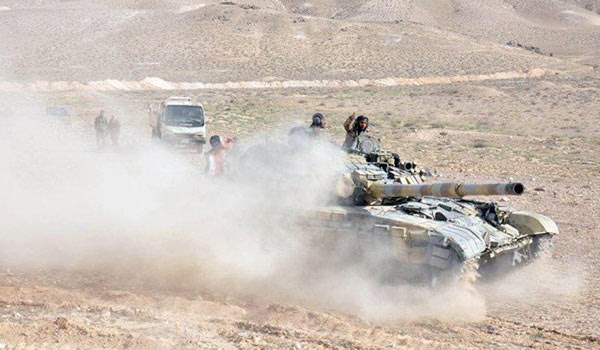
RNA - This is a potential major legal issue, because Syria never authorized the US invasion in the first place. US officials always presented the authorization as being UN resolutions supporting the fight against ISIL, but that would no longer apply.
Moreover, Russian Foreign Minister Sergey Lavrov has pointed out that US Secretary of State Tillerson has repeatedly assured him that the “only” US goal in Syria is to fight ISIL. This is adding to international concerns about what the US is actually planning on doing next, now that ISIL has been defeated.
Secretary of Defense James Mattis is trying to present this as keeping “ISIL 2.0” from coming into existence. While this is also the pretext for staying and occupying Iraq permanently, there is a major difference between a permanent deployment in Iraq that the US-backed government there supports, and trying to stay and occupy Syria forever despite explicit opposition from the Syrian government and its Iranian-Russian allies.
This raises a fundamental question about US aims in the ongoing war on Syria:
President Donald Trump has apparently sought to limit US involvement in Syria for his own reasons. Yet has been sucked in and struggled to clearly define his objectives in the messy, complicated war. Trump hasn't defined the outcome he seeks. But Secretary of State Tillerson now says President Bashar Assad should have "no role" in governing Syria.
The problem is, President Assad is in his strongest position in several years. With help from Russia and Iran, the Syrian Army has retaken most major cities in the country, while ISIL remains on the defensive due to the Russian bombing campaign.
In addition, power abhors a vacuum, and Syria’s allies would pursue their own strategies independent of the United States. The US never fully came to grips with the fact Iran and Hezbollah played a major role in Syria, and had acquired more influence in Iraq by the time US forces returned than that which the US possessed. The only difference is that Iran seeks peace and stability there. Unlike the United States, Iran has no intention to occupy its neighbors permanently.
Moreover, the US failed to pay full attention to Turkey’s decades-long struggle against its Kurdish separatists, its fear of the political and military emergence of Syria’s Kurds, and its fear of some broader Iraqi Kurdish support of separatism that would involve Turkey’s Kurds as well. Finally, it is unclear that the US ever seriously considered the possibility of Iranian-Russian involvement in Syria - until it happened and saved the country from falling into the hands of foreign-backed terrorists and extremists.
Above all, the base structure the Pentagon regime has built since the regime-change war on Syria began is intended to enable military interventions and wars of choice in the Greater Middle East. In the absence of UN opposition, these bases will make future military actions all too easy to contemplate, launch, and carry out. Today, it seems beyond irony that the target of the Pentagon’s “new” base strategy is no longer ISIL, whose very existence and growth the US owes to the Iraq War and the chaos it created.
The bottom line is that the US-led regime-change war has failed as a strategy; military force and permanent occupation will equally fail as a strategy for controlling post-ISIL Syria, no less affecting regime change. Sadly, this infrastructure of war has been in place for so long and is now so taken for granted that most members of the international community seldom think about it.
They rarely question the usefulness and legality of the US bases in maintaining global peace and stability, or that expanding the base will only perpetuate terrorism and a militarized US foreign policy premised on assumptions about the efficacy of war and military occupation that should have been discredited long ago. Investing in permanent bases rather than diplomatic, political, and humanitarian efforts to reduce violence and terrorism in Syria and across the region is likely to do little more than ensure enduring war.
847/940